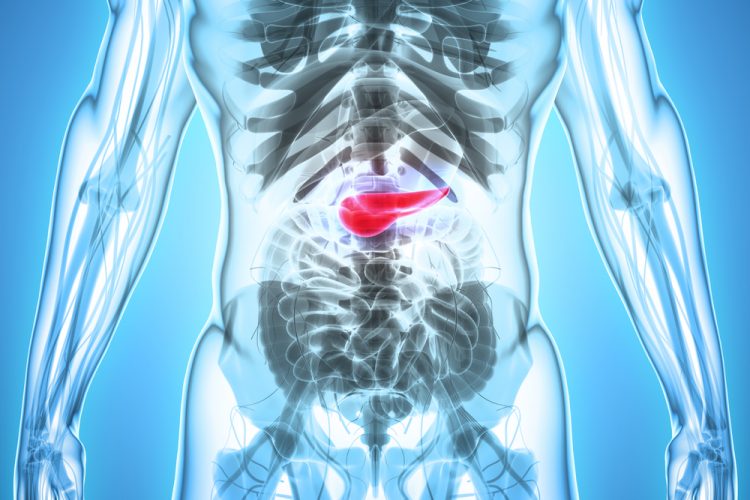Research shows pancreatitis biomarker linked to pancreatic cancer
Posted: 25 June 2019 | Victoria Rees (Drug Target Review) | No comments yet
A study has discovered that a biomarker associated with pancreatitis is involved in its development to pancreatic cancer.


A new study has found that a chemical structure called CA19-9, a known biomarker for pancreatitis, contributes to patients developing pancreatic cancer. The discovery could inform the development of therapies for the condition.
“This is one of those unique opportunities where prophylactic intervention of pancreatitis may lead to prevention of pancreatic cancer in at-risk patients,” said Dannielle Engle, the lead researcher.
The research team investigated CA19-9, a complex sugar structure that coats many proteins but had not previously been found to have a distinct function. A single enzyme controls the final step in production of CA19-9 in humans, but this enzyme is missing in rodents. The researchers generated mice that produced CA19-9 and noted that the mice developed severe pancreatitis. The findings position CA19-9 as an attractive therapeutic target for pancreatitis.
Biomarkers aren’t just supporting drug discovery – they’re driving it
FREE market report
From smarter trials to faster insights, this report unpacks the science, strategy and real-world impact behind the next generation of precision therapies.
What you’ll unlock:
- How biomarkers are guiding dose selection and early efficacy decisions in complex trials
- Why multi-omics, liquid biopsy and digital tools are redefining the discovery process
- What makes lab data regulatory-ready and why alignment matters from day one
Explore how biomarkers are shaping early drug development
Access the full report – it’s free!
In mice, CA19-9 recruits the immune system to repair injuries from pancreatitis. The study found that during this recruitment process, CA19-9 can also induce a cascade of biochemical reactions propelled by the release of deleterious digestive enzymes from the pancreas. This cascade opens a transformational gateway for cancer to develop and the team also demonstrated that CA19-9 can dramatically accelerate the growth of pancreatic tumours.
“Pancreatitis is required for developing pancreatic cancer and we might be able to prevent that transition in patients with pancreatitis by targeting CA19-9,” posited Engle. “By targeting CA19-9 with antibodies in animal models, we were able to reduce the severity of pancreatitis and even prevent it from occurring.”
A pending patent application filed by Cold Spring Harbor Laboratory (CSHL) covering use of CA19-9 antibodies for the treatment and prevention of pancreatitis has been exclusively licensed to BioNTech, a German-based biotech company.
The findings are published in the journal Science.
Related topics
Drug Targets, Enzymes, Protein
Related conditions
Pancreatic cancer, Pancreatitis
Related organisations
BioNTech, Cold Spring Harbor Laboratory, Science.
Related people
Dannielle Engle








